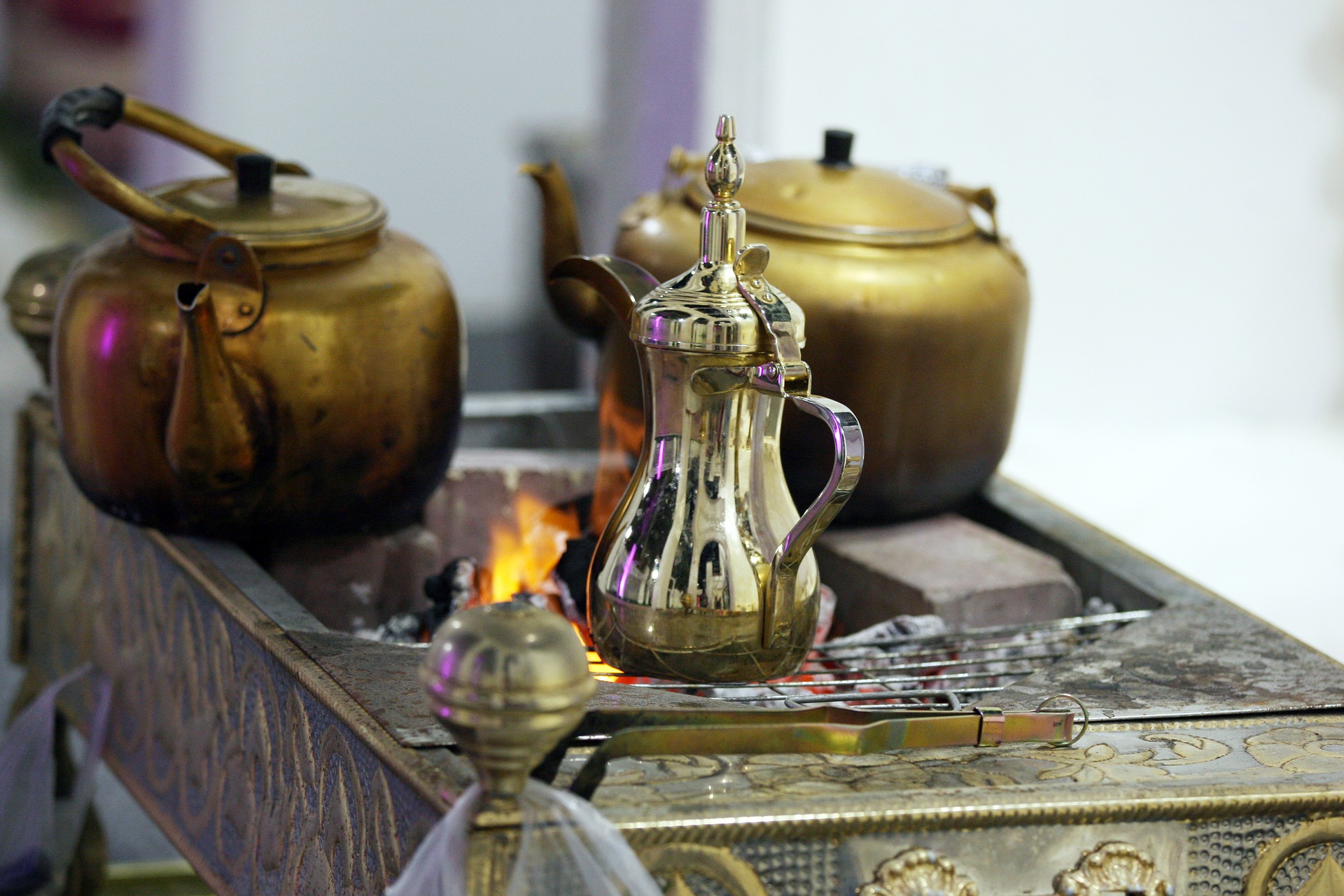Qahwa coffee, also known as Arabic coffee, is a cherished beverage in Arabian and Kashmiri cultures.
Made from green coffee beans and fragrant cardamom, it offers a unique taste experience.
Traditionally served during social gatherings and religious occasions, Qahwa is more than just a drink; it’s a symbol of hospitality and tradition.
This rich, aromatic coffee is prepared using simple ingredients and a time-honored method, making it a staple in Middle Eastern homes.
Discover how to bring this cultural treasure into your own kitchen with our easy-to-follow recipe!

How To Make Qahwa Coffee: At A Glance
- Step 1: Boil Water
- Step 2: Add Coffee
- Step 3: Add Spices
- Step 4: Let it Settle
- Step 5: Optional Additions
- Step 6: Strain and Serve
What is Qahwa Coffee?
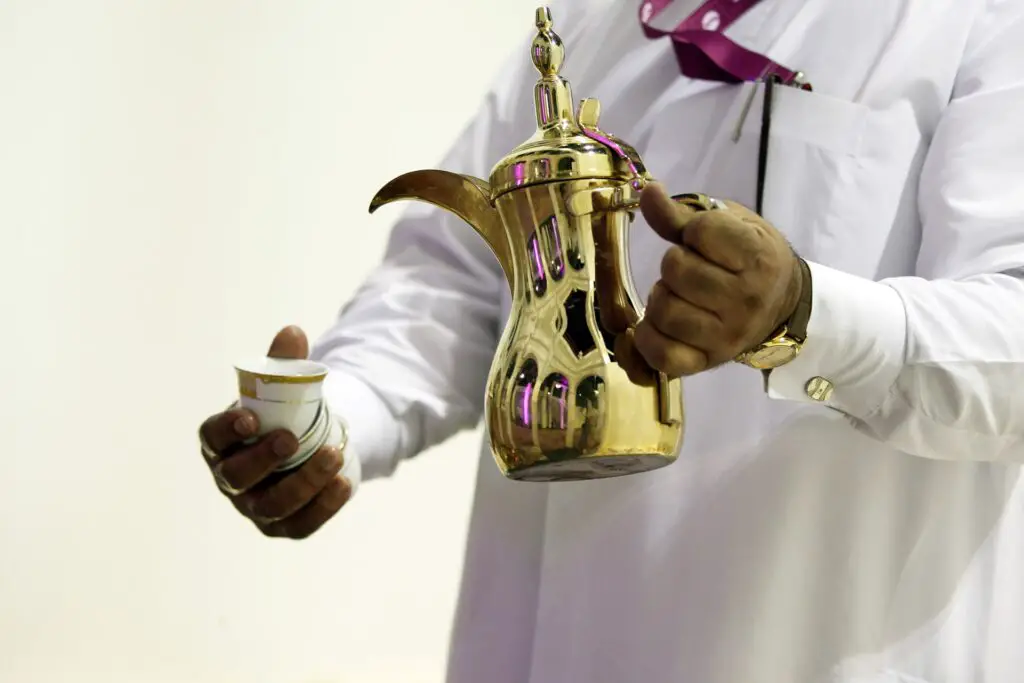
Qahwa coffee, also known simply as Arabic coffee, is a traditional beverage with deep roots in Arabian and Kashmiri cultures.
It is distinctively prepared using green coffee beans and cardamom, giving it a unique, aromatic flavor.
Unlike regular coffee, Qahwa is lightly roasted, resulting in a pale, golden color.
This coffee holds significant cultural and social importance across the Middle East.
It is more than just a drink; it is an integral part of hospitality and social gatherings.
Serving Qahwa is a symbol of respect and warmth.
It is commonly offered to guests during social events like weddings, parties, and important religious occasions such as Ramadan.
After breaking the fast during Iftar, Qahwa is a staple beverage, appreciated for its soothing and digestive properties.
In 2015, UNESCO recognized the cultural value of Qahwa by adding it to the Intangible Cultural Heritage list.
This acknowledgment highlights the traditional practices, rituals, and communal values associated with Qahwa coffee.
The brewing and serving of Qahwa reflect a rich heritage that has been passed down through generations, preserving the essence of Middle Eastern hospitality.
Ingredients Needed
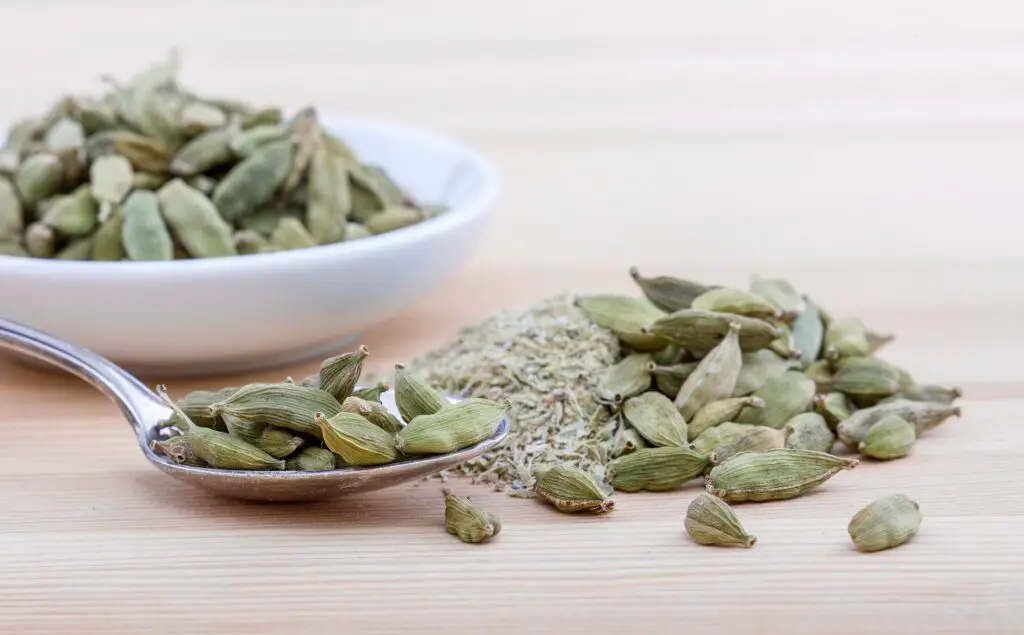
To make authentic Qahwa coffee, you’ll need a few key ingredients.
The primary ingredient is green coffee beans.
These beans are lightly roasted and then coarsely ground to achieve the distinctive flavor of Qahwa.
Crushed cardamom pods or seeds are essential for the characteristic aroma and taste.
They add a fragrant, spicy note that complements the coffee perfectly.
Water is, of course, necessary for brewing the coffee.
Use fresh, clean water to ensure the best taste.
For those who like to experiment with flavors, there are optional ingredients you can add.
Saffron strands can provide a subtle, luxurious hint of flavor and a golden color.
Rose water adds a floral aroma that enhances the overall experience.
Cloves and cinnamon are also popular additions, each bringing its own unique spice to the mix.
Here’s a quick list of what you’ll need:
- Green coffee beans, lightly roasted and coarsely ground.
- Crushed cardamom pods or seeds.
- Water.
- Optional: saffron strands, rose water, cloves, cinnamon.
Equipment Required
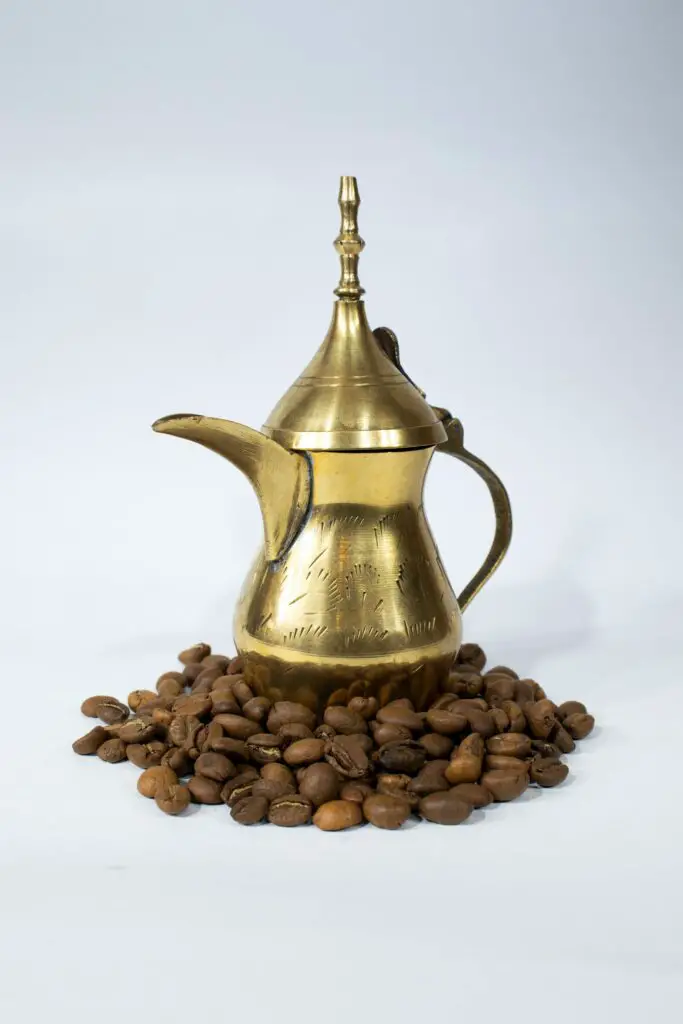
To brew Qahwa coffee authentically, you will need some specific equipment.
The traditional pot used is called a dallah.
This distinctive, long-spouted coffee pot is iconic in Arabian coffee culture.
It is typically made of brass or stainless steel and is designed to pour coffee precisely into small cups.
If you don’t have a dallah, you can use alternative pots such as a saucepan or a Turkish ibrik.
For serving, Qahwa is traditionally poured into small, handleless cups known as finjaan.
These cups are designed to hold just a few sips of coffee, which encourages savoring each mouthful.
The small size also allows for the coffee to stay warm and fresh with each serving.
Here’s a quick list of the equipment you’ll need:
- Dallah (traditional Arabic coffee pot): For an authentic brewing experience.
- Alternative pots (saucepan or Turkish ibrik): Suitable substitutes if a dallah is not available.
- Small handleless cups (Finjaan): Traditional cups for serving Qahwa.
Step-by-Step Preparation Guide
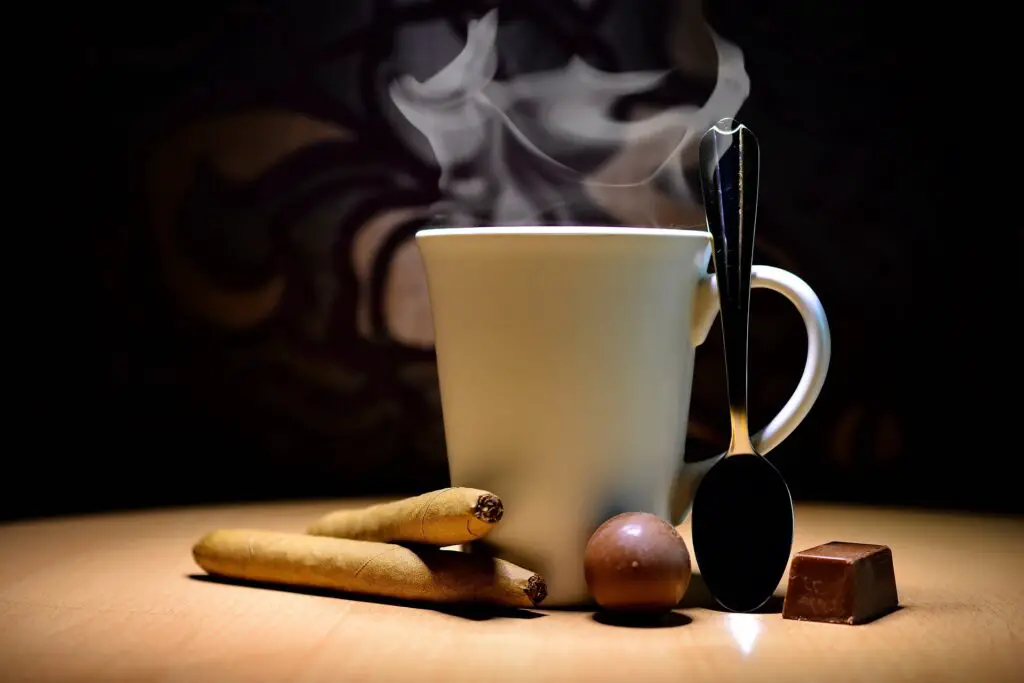
Step 1: Boil Water
Start by bringing water to a boil in your dallah or saucepan.
Use fresh, clean water for the best flavor.
If you’re using a dallah, fill it about halfway to allow room for the coffee and spices later.
Step 2: Add Coffee
Once the water reaches a boil, add the coarsely ground green coffee beans.
This is the base of your Qahwa and gives it its distinct flavor.
Allow the coffee to simmer for about 10 minutes.
This slow simmer helps to extract the full flavor from the beans.
Step 3: Add Spices
After the initial simmer, add the crushed cardamom pods or seeds and cloves.
These spices are essential for the traditional Qahwa taste.
Continue to simmer the mixture for another 5 minutes.
This ensures that the spices infuse well with the coffee, creating a rich, aromatic brew.
Step 4: Let it Settle
Remove the coffee from the heat and cover the pot.
Let the coffee grounds settle to the bottom.
This step is crucial to ensure a clear cup of coffee without any grounds.
Do not stir during this time, as this could disturb the settling process.
Step 5: Optional Additions
If you want to enhance the flavor further, you can add saffron strands and rose water at this stage.
Saffron adds a luxurious touch, while rose water provides a subtle floral aroma.
These additions are optional but highly recommended for an authentic experience.
Step 6: Strain and Serve
Strain the coffee to remove the grounds and pour it into a serving flask or teapot.
This makes it easy to serve and keeps the coffee hot.
Serve the Qahwa hot in small handleless cups, known as finjaan.
For an authentic touch, accompany the coffee with dates or sweet treats.
This combination balances the bitterness of the coffee and offers a delightful contrast.
Serving Suggestions
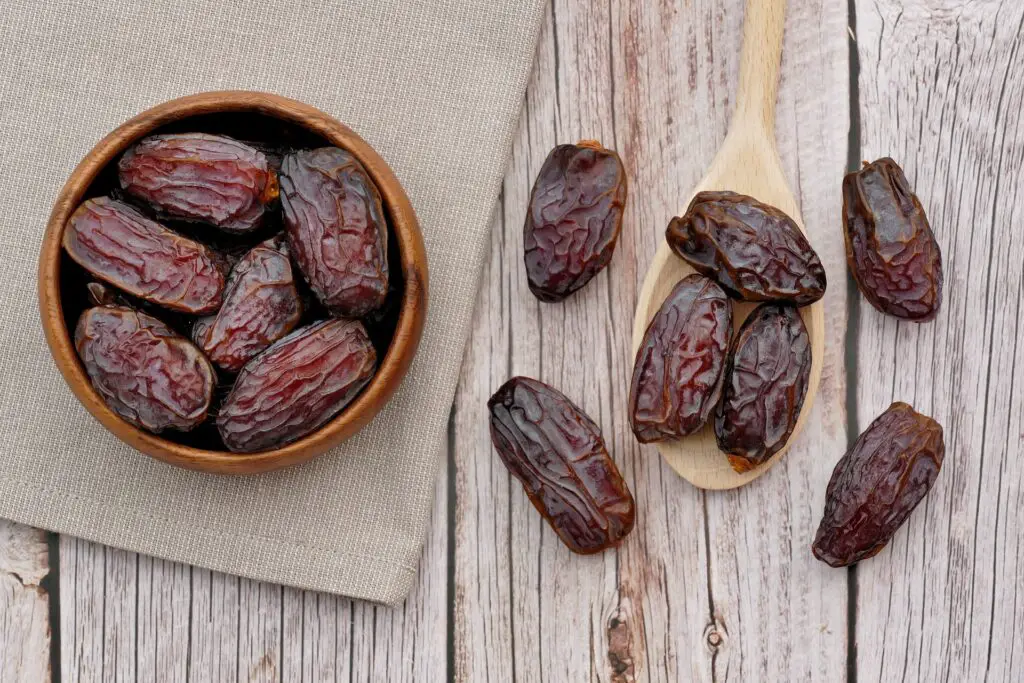
Traditional Pairing with Dates and Sweet Treats
Qahwa coffee is traditionally enjoyed with dates or other sweet treats like baklava.
This pairing enhances the coffee experience by balancing the coffee’s bitterness with the sweetness of the treats.
Dates are the most common accompaniment, offering a natural sweetness that complements the strong, aromatic coffee.
Baklava, with its layers of pastry and honey, also pairs wonderfully with Qahwa, providing a rich and satisfying contrast.
The Three-Sip Tradition
To fully appreciate the flavors of Qahwa, it is often suggested to take three small sips.
The first sip acclimates your palate to the coffee’s intense flavor.
The second sip allows you to start experiencing the blend of spices and coffee.
By the third sip, you should be able to fully enjoy the depth and complexity of the flavors.
Cultural Etiquette of Serving Qahwa
Serving Qahwa to guests is a significant cultural practice in Middle Eastern hospitality.
The host typically serves the coffee, ensuring that the guests’ cups are never empty.
The finjaan, or small handleless cups, are filled only halfway.
This practice symbolizes generosity and respect.
It is customary to serve the eldest or most honored guest first, followed by the other guests in descending order of status or age.
Guests usually signal that they have had enough coffee by gently shaking the empty cup.
This is a common etiquette practice in Arabic coffee culture, where the guest shakes the cup to indicate that they do not wish to refill it.
Tradition of Reading Coffee Grounds
An intriguing cultural practice associated with Qahwa is the tradition of reading coffee grounds.
After drinking Qahwa, the remaining grounds at the bottom of the cup are sometimes interpreted to predict the future or reveal insights about the drinker’s life.
This tradition, known as tasseography, involves swirling the coffee grounds and then turning the cup upside down to allow the patterns formed by the grounds to be read.
This practice is often performed in social settings, adding an element of mystique and entertainment to the coffee-drinking experience.
Variations and Tips
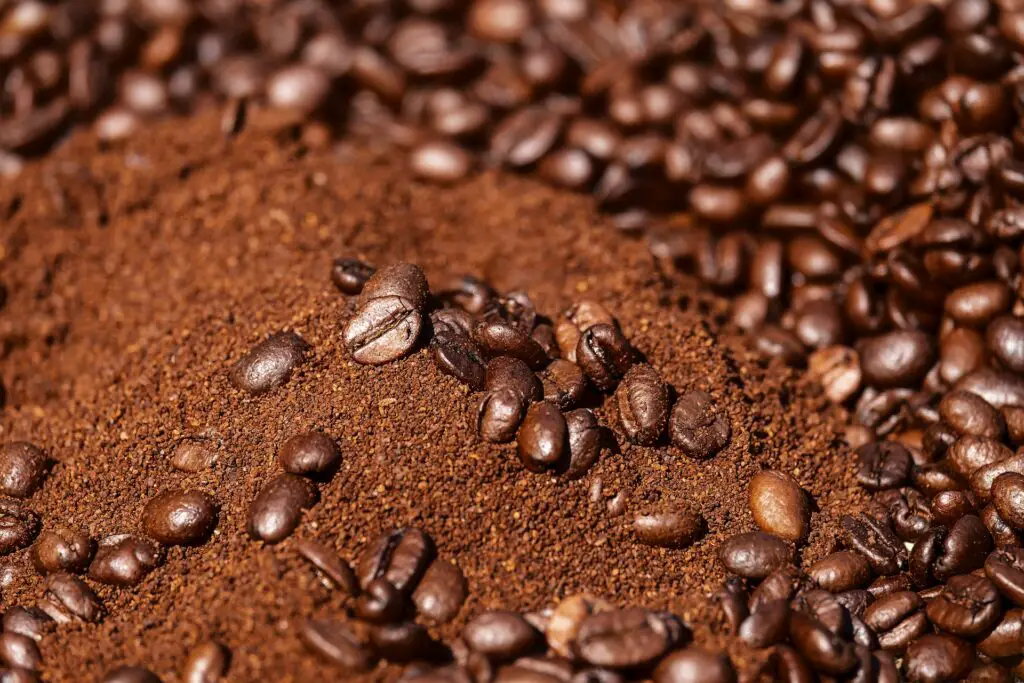
Different Regional Variations
Qahwa coffee has many regional variations across the Middle East, each adding its unique touch to the traditional recipe.
In some areas, cinnamon is a popular addition, providing a warm, sweet aroma that enhances the coffee’s flavor.
Other regions might include cloves, which add a spicy, slightly sweet note.
Tips for Adjusting Strength and Flavor
Adjusting the strength and flavor of your Qahwa to suit personal preferences is easy with a few simple tips.
If you prefer a stronger coffee, use more ground coffee beans or simmer the coffee for a longer period.
For a milder taste, reduce the amount of coffee or shorten the simmering time.
Experiment with the spices to find your perfect blend.
If you enjoy a more aromatic coffee, increase the amount of cardamom or add a pinch of cinnamon.
For a sweeter and more floral note, add a little extra rose water.
Remember, the key to a great cup of Qahwa is balancing the flavors to your liking.
Using Freshly Ground Coffee Beans
For the best taste, always use freshly ground coffee beans.
Grinding your own green coffee beans just before brewing ensures that the coffee retains its full flavor and aroma.
Pre-ground coffee can lose its potency over time, leading to a less vibrant taste.
Invest in a good quality coffee grinder and experiment with the grind size to find what works best for your Qahwa.
Coarsely ground beans are ideal, as they allow the coffee to infuse properly without becoming overly bitter.
Health Benefits and Nutritional Information

Health Benefits of Qahwa Coffee
Qahwa coffee is more than just a flavorful drink; it also offers several potential health benefits.
One of the primary advantages is its ability to aid digestion.
The combination of green coffee beans and spices like cardamom and cloves can help stimulate digestive enzymes, which may improve digestion and reduce bloating.
The cardamom used in Qahwa is known for its antioxidant and anti-inflammatory properties.
These properties can help protect cells from damage and reduce inflammation in the body.
Additionally, cardamom has been traditionally used to treat issues like bad breath and respiratory problems.
Cloves, another common ingredient, have antimicrobial properties and are rich in antioxidants.
They can help boost the immune system and fight off infections.
Saffron, if used, is also rich in antioxidants and may improve mood and reduce symptoms of depression.
Rose water, an optional addition to Qahwa, has been shown to have anti-inflammatory properties and can help soothe the digestive tract.
Nutritional Information per Serving
The nutritional content of Qahwa coffee can vary based on the specific recipe and the ingredients used.
Here is a general overview of the nutritional information per serving (approximately one small cup):
- Calories: 5-10 (without any added sugar or sweeteners)
- Carbohydrates: 0-2 grams
- Protein: 0 grams
- Fat: 0 grams
- Fiber: 0 grams
- Sugars: 0 grams
It’s important to note that Qahwa coffee is typically consumed without added sugar or milk, which helps keep its calorie content low.
The spices used in Qahwa do not significantly contribute to the caloric content but do add a rich array of antioxidants and other beneficial compounds.
Conclusion
Qahwa coffee stands out with its unique blend of green coffee beans, cardamom, and optional spices like saffron and rose water.
Its rich cultural significance and traditional preparation make it a special beverage enjoyed during social gatherings and religious events.
We encourage you to try making Qahwa at home and experience its distinctive flavor and aroma.
Share your Qahwa experiences with friends and family, and enjoy the warmth and hospitality it symbolizes.


